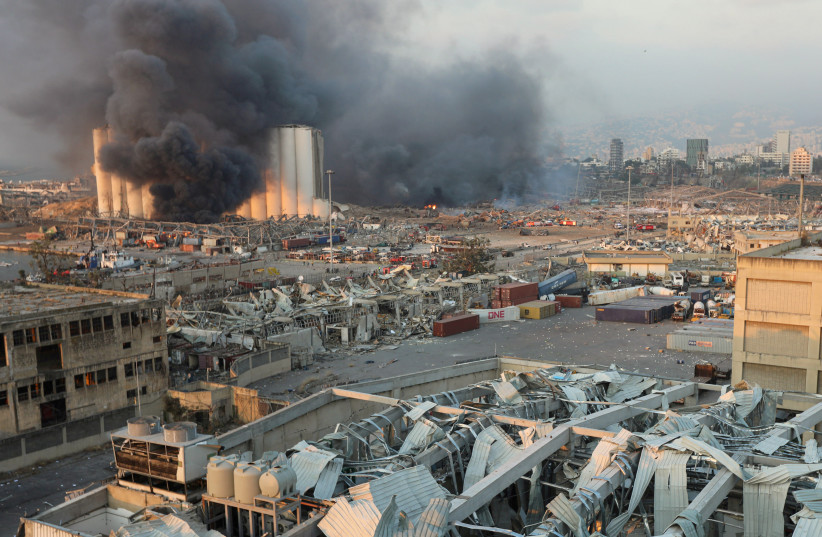Hezbollah has increasingly become more powerful than the State of Lebanon, conducting its foreign policy, sending fighters to wage wars on behalf of Lebanon in Syria, and now looking to have a stranglehold on the country’s energy needs. The Iranian-backed Lebanese group said it would begin to import gasoline and diesel from Iran in mid-August. In the two weeks since then, Hezbollah has clarified some of the details.
According to Tasnim News in Iran and Al-Ahd News, Sheikh Ali Dammoush, deputy chairman of the Executive Council of Hezbollah in Lebanon, said on Friday during a sermon that Hezbollah will solve Lebanon’s problems. Lebanon is in a financial free fall and the country is slouching from one crisis to another with inflation, a weak currency and energy scarcity.
This has ruined the middle class, from which Hezbollah has fed – meaning that as Lebanon falters, Hezbollah sponges up more parts of the economy. Because it traditionally lived off the poorer Shi’ite population, its goal was to sideline Sunnis and co-opt Christians, in order to grab enough votes in the sectarian parliament of Lebanon.
Hezbollah has already achieved control of the presidency, with its Christian ally Michel Aoun installed there, and it controls the country’s foreign policy. Although Lebanon has an army, Hezbollah controls defense policy as well, stockpiling 150,000 missiles aimed at Israel. Now the Islamic group says it provides livelihoods and reduces the suffering of the people, and the decision to import fuel from Iran has been made in order to serve the people and meet their challenges, according to Dammoush.
“He added that Hezbollah’s decision to import fuel from Iran was not politically motivated and did not fall within the scope of conflicts or political settlements,” Tasmin notes. “Rather, this decision is motivated by human and moral motives, because Hezbollah will never tolerate the siege and starvation of Lebanon and its people.” This is the Hezbollah narrative.
Hezbollah now wants to leverage its control to make a play for the economy. This could mean having Israel’s mortal enemy sitting astride fuel imports, giving it even more power. It would mean Hezbollah allies and partners would be enriched and people would wait in line for Hezbollah-provided gas.
And it would mean even more control for Iran. Hezbollah has already argued that Lebanon’s economy must be reoriented toward the East: toward Iran and China, which have a new 25-year deal between them. The Islamist group moving to take over Lebanon wants a similar deal for its host country.
Hezbollah says the decision to bring in Iranian energy imports “also has political consequences, the most important of which is the defeat of the siege against the Lebanese people imposed by the United States – and the import of fuel from Iran means hitting all US efforts to force Lebanon to surrender.”

The Hezbollah narrative also connects fuel imports to its “resistance” against outside forces. Dammoush pointed to how Hezbollah had fought ISIS in 2015-2017 and how it works with the army.
“In this liberation, it was also revealed that victory is the logic of resistance – and the triangle of army and nation and resistance is the golden equation,” he said.
Hezbollah has also made it impossible for a new government to be formed. It was likely behind the corruption that led to the devastating explosion last year in the capital Beirut. No one has been charged for the destruction and death caused by storage at the port of ammonium nitrate, a product likely being used by Hezbollah for blasting tunnels or other destructive activities. This is similar to the murder of Lebanese former prime minister Rafic Hariri, another Hezbollah crime that took place in 2005.
Dammoush says the Lebanese are paying a heavy price for the lack of a government.
“We at Hezbollah were responsible for the formation of the government from the beginning and we provided all the facilities to make this happen as soon as possible,” he claimed. In fact, it is Hezbollah that has blocked the formation of a government so it can profit from the chaos.
